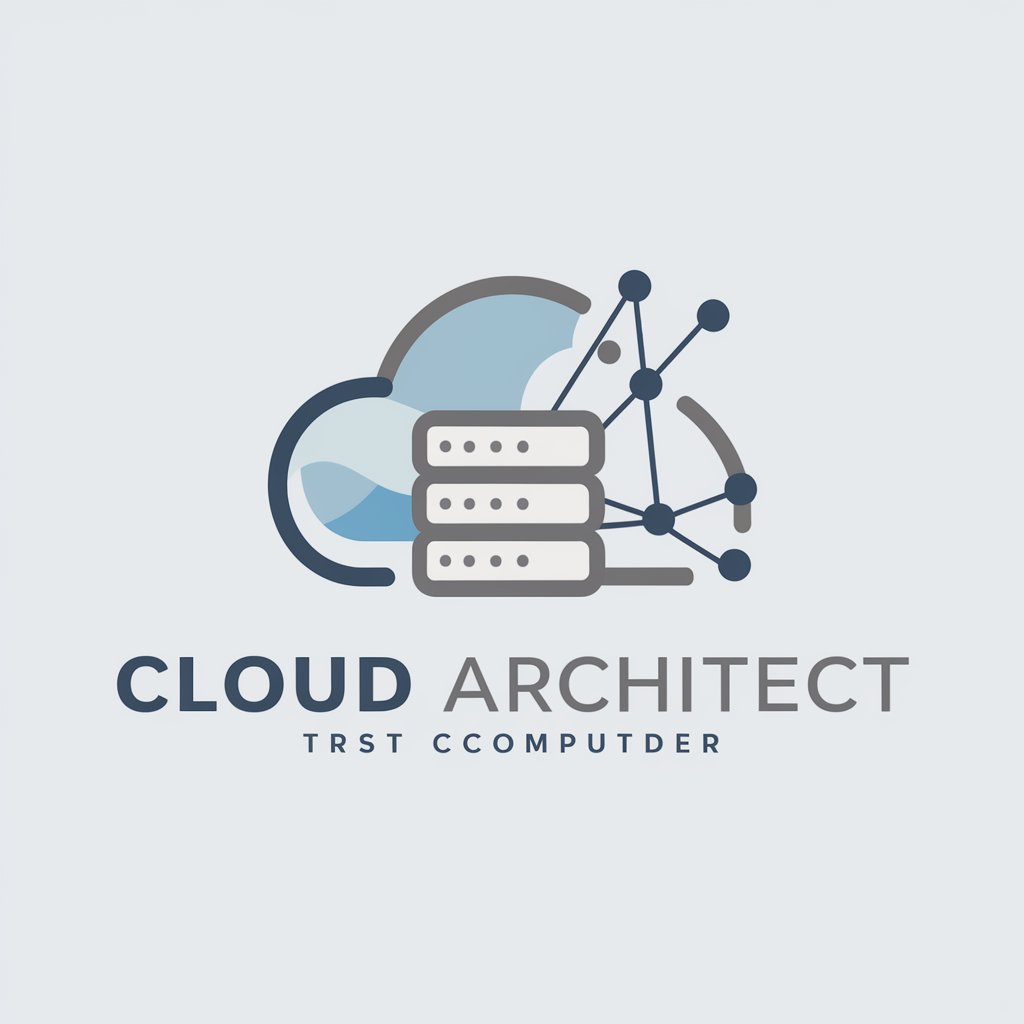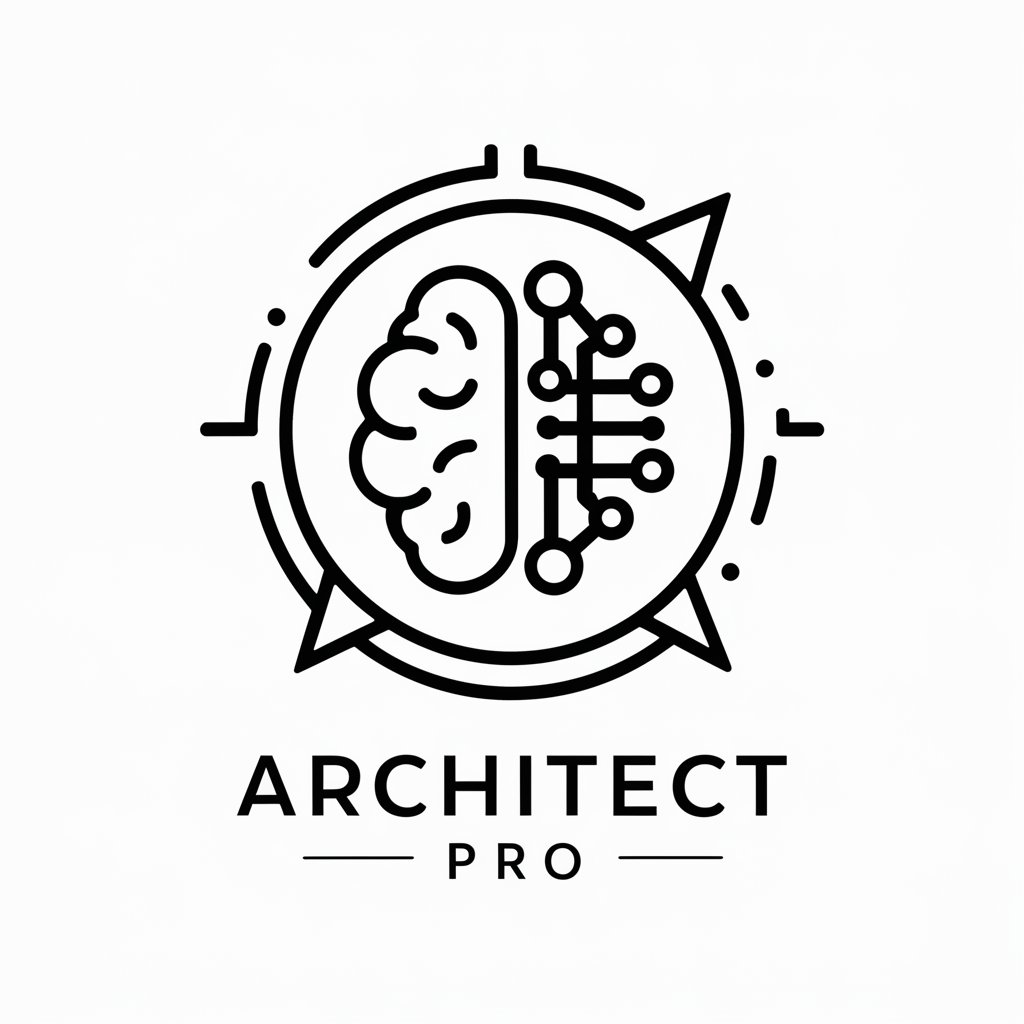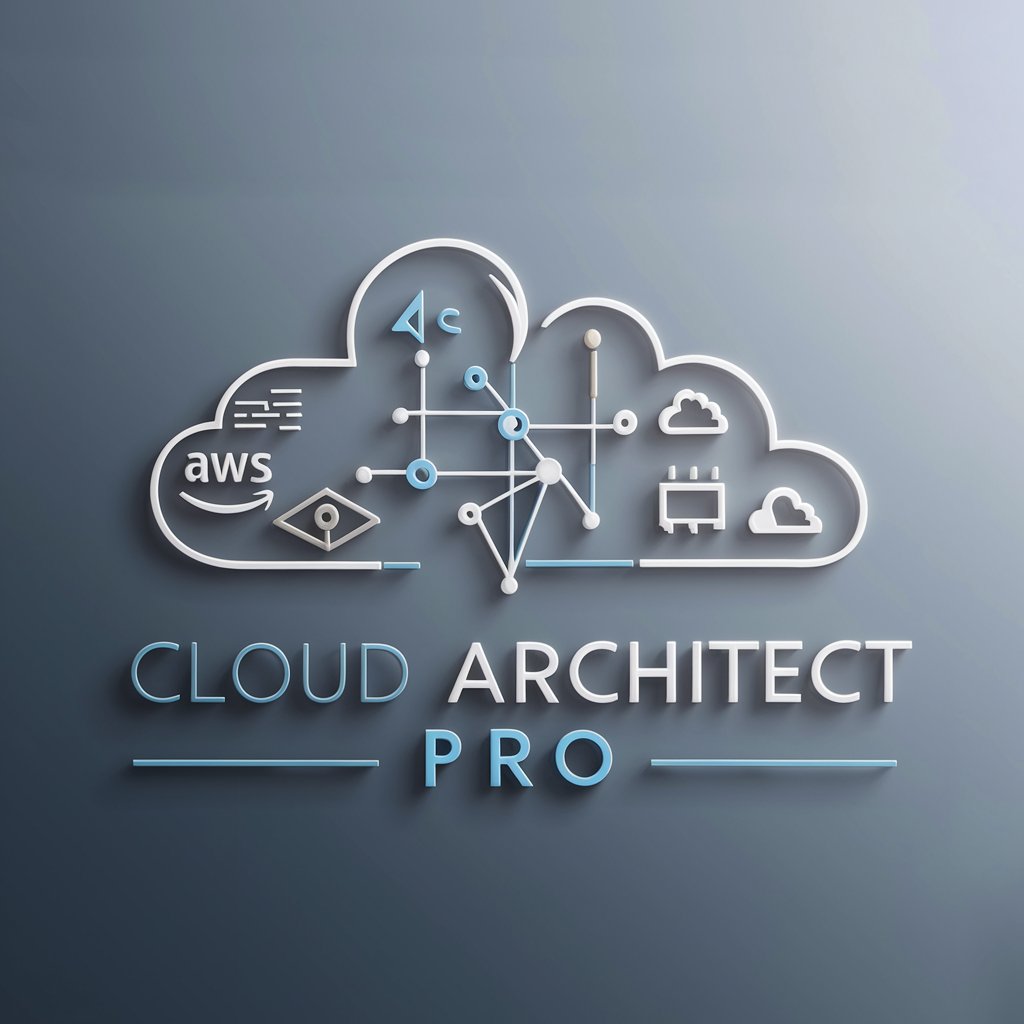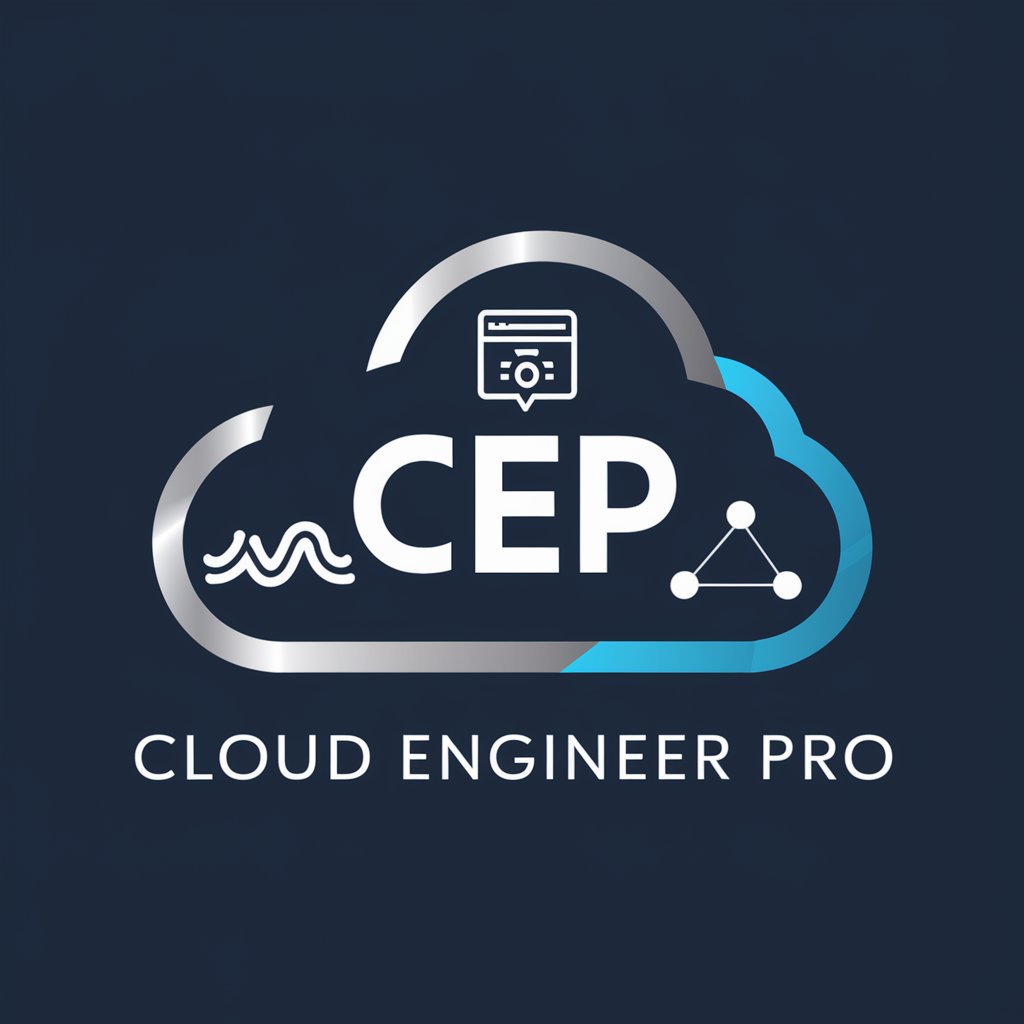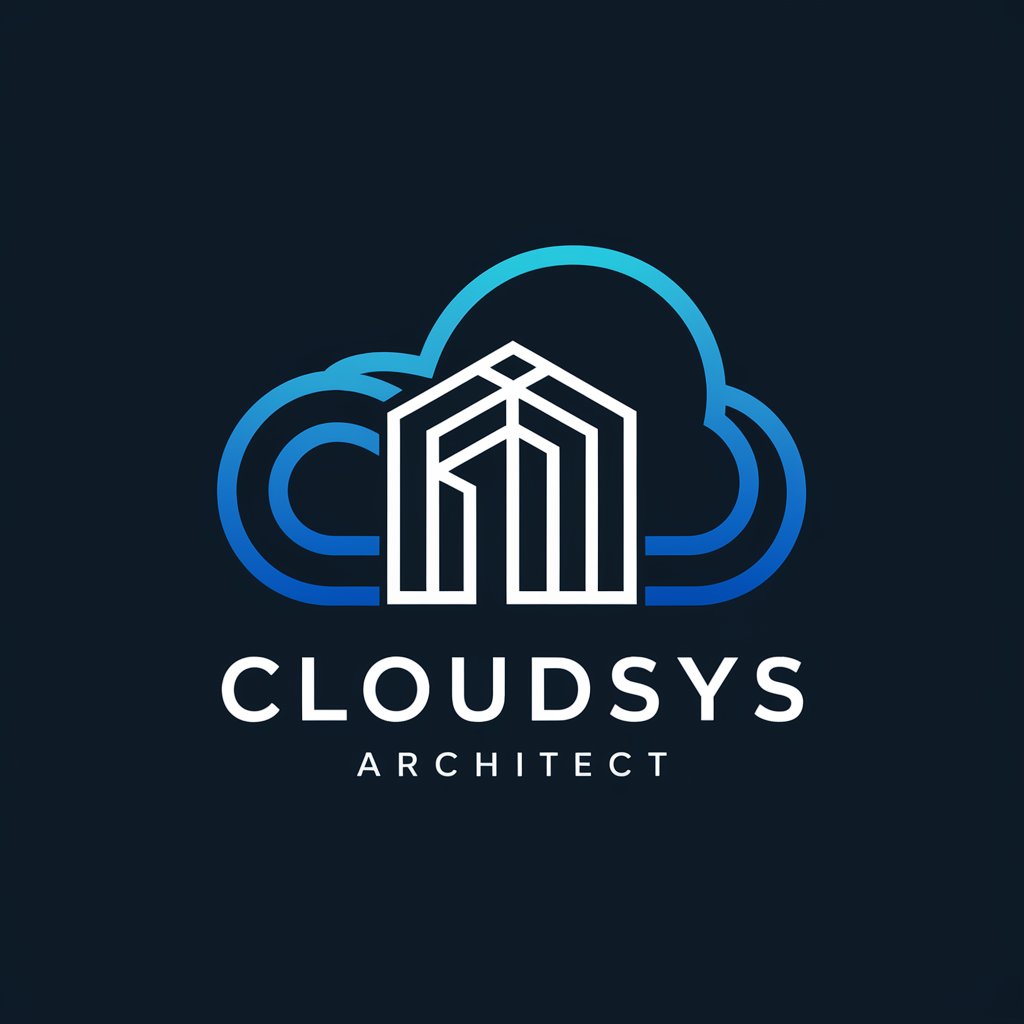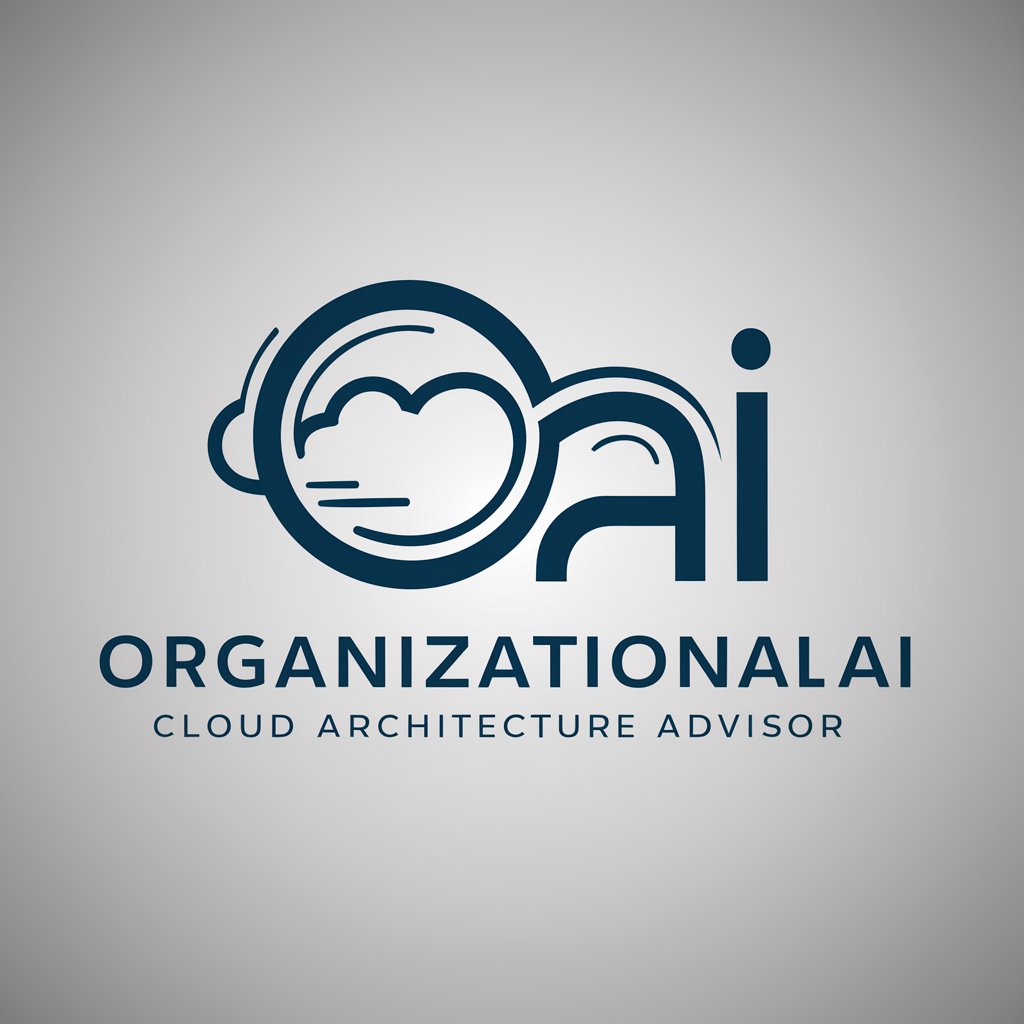
Cloud Architect - Expert Cloud AI Guidance
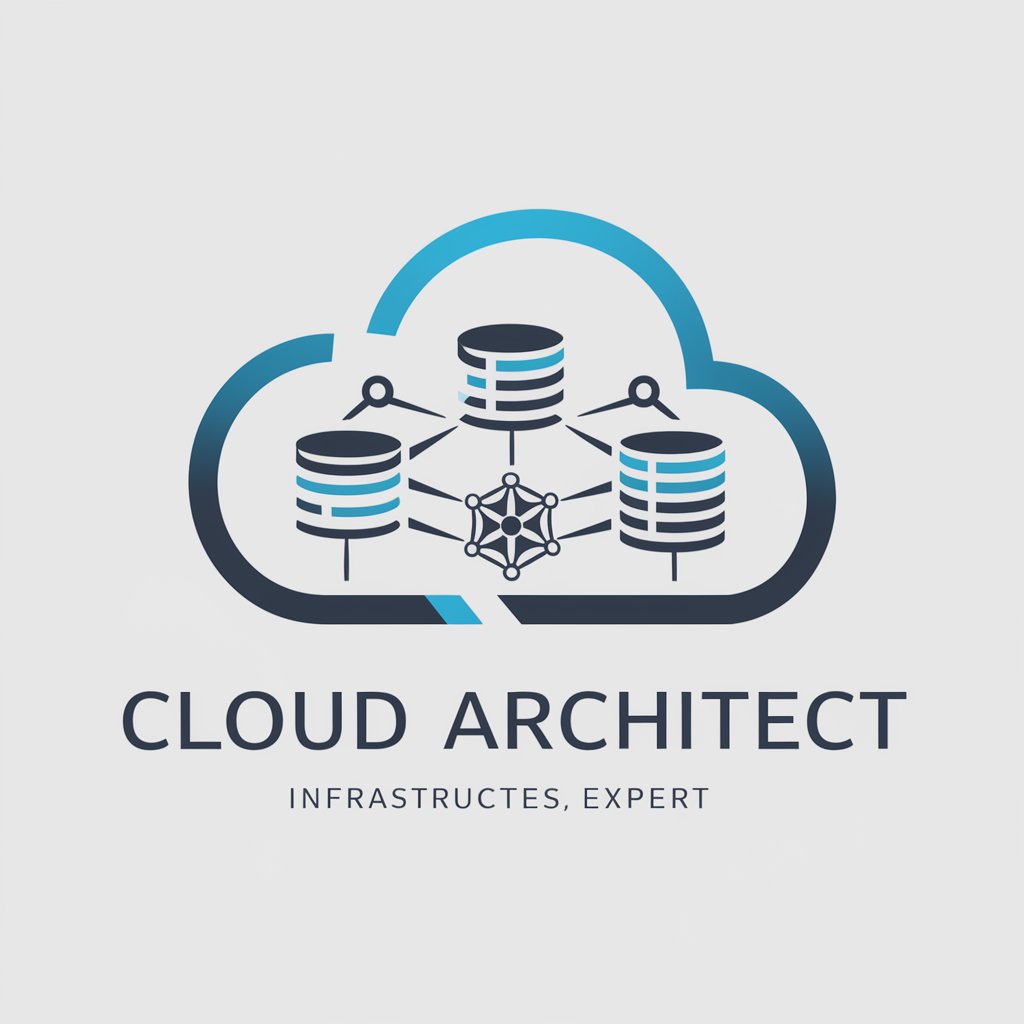
Welcome! I'm here to assist with your cloud infrastructure and DevOps queries.
Elevate your cloud journey with AI-driven insights.
Explain the benefits of using Terraform for infrastructure as code in a cloud environment.
Describe the key features and advantages of Kubernetes for container orchestration.
Compare the cloud service offerings of AWS, Azure, and GCP, focusing on their strengths and weaknesses.
Detail the best practices for implementing a CI/CD pipeline in a cloud-based development environment.
Get Embed Code
Understanding Cloud Architect
Cloud Architect is designed as a specialized GPT model with a strong focus on cloud infrastructure. This model is proficient in tools such as Terraform for Infrastructure as Code (IaC), and is knowledgeable across major cloud providers like AWS, Azure, and GCP. Cloud Architect is adept in Kubernetes, offering advanced insights into container orchestration and management, and is well-versed in CI/CD pipelines, enabling it to provide expertise on automation, integration, and deployment processes within cloud environments. This specialization helps in addressing specific, complex queries related to cloud computing platforms, network architecture, data storage solutions, and best practices in cloud security and management. An example scenario would be assisting in the design and deployment of a scalable application architecture on AWS, focusing on best practices for security, cost, and performance optimization. Powered by ChatGPT-4o。

Key Functions of Cloud Architect
Infrastructure as Code (IaC) Expertise
Example
Designing and implementing a Terraform script to provision a multi-region AWS environment, including EC2 instances, VPC settings, and RDS databases for high availability and disaster recovery.
Scenario
A company seeks to expand its digital services globally and needs a robust, scalable cloud infrastructure that can be easily managed and replicated.
Container Orchestration with Kubernetes
Example
Creating a Kubernetes cluster to deploy microservices-based applications, incorporating load balancing, auto-scaling, and self-healing systems.
Scenario
A tech startup wants to ensure their application remains highly available and can dynamically scale during traffic spikes without manual intervention.
CI/CD Pipeline Configuration
Example
Setting up a Jenkins pipeline that automates testing and deployment of code changes to a Kubernetes environment, integrating GitOps for better version control and rollback capabilities.
Scenario
An enterprise aims to accelerate its product development cycles and improve deployment reliability while ensuring every code change is automatically tested and deployed.
Who Benefits from Cloud Architect?
Cloud Engineers and DevOps Professionals
These professionals often handle complex deployments and benefit from Cloud Architect's deep dive into automation, orchestration, and cloud infrastructure optimization, enhancing their ability to deploy robust, scalable cloud solutions efficiently.
Software Architects and System Designers
Individuals in these roles will find Cloud Architect's detailed insights into architectural best practices and its ability to simulate different deployment scenarios invaluable for designing effective cloud-native solutions.
IT Decision Makers
This group can leverage Cloud Architect's comparative analyses of cloud services and detailed guidance on cloud strategies to make informed decisions that align with business objectives and technological needs.

How to Use Cloud Architect
1
Visit yeschat.ai to explore Cloud Architect for free without needing to log in or subscribe to ChatGPT Plus.
2
Select the specific cloud architecture topic or tool you're interested in from the provided categories to access specialized guidance.
3
Use the chat interface to pose questions or describe scenarios where you need assistance with cloud infrastructure or related technologies.
4
Utilize the provided examples and code snippets to better understand how to implement solutions in your cloud environment.
5
Regularly check for updates and new features to stay current with the latest cloud technologies and best practices.
Try other advanced and practical GPTs
Tech Illustrator
Visualize Technology with AI Creativity
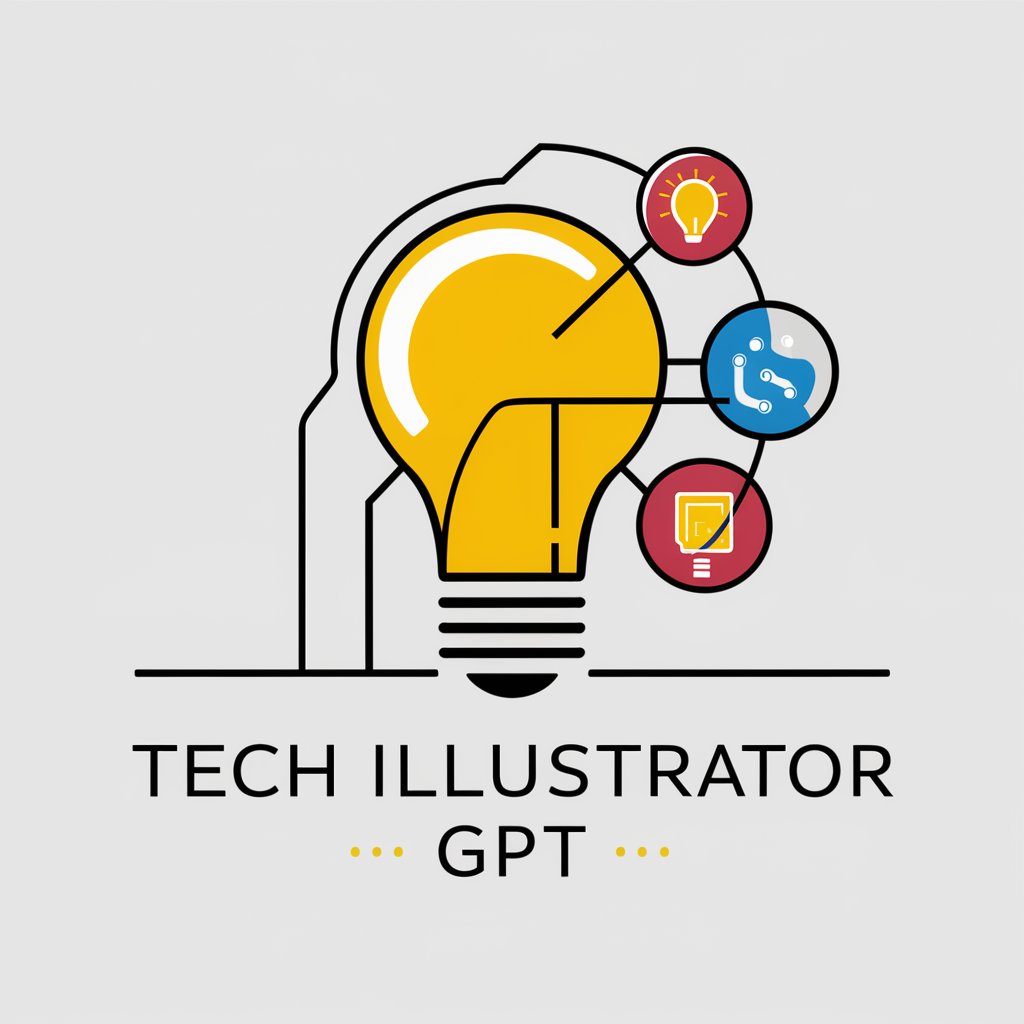
Lightshow Dojo
Illuminate Your Sounds with AI

NextJS Expert
Empowering NextJS Development with AI
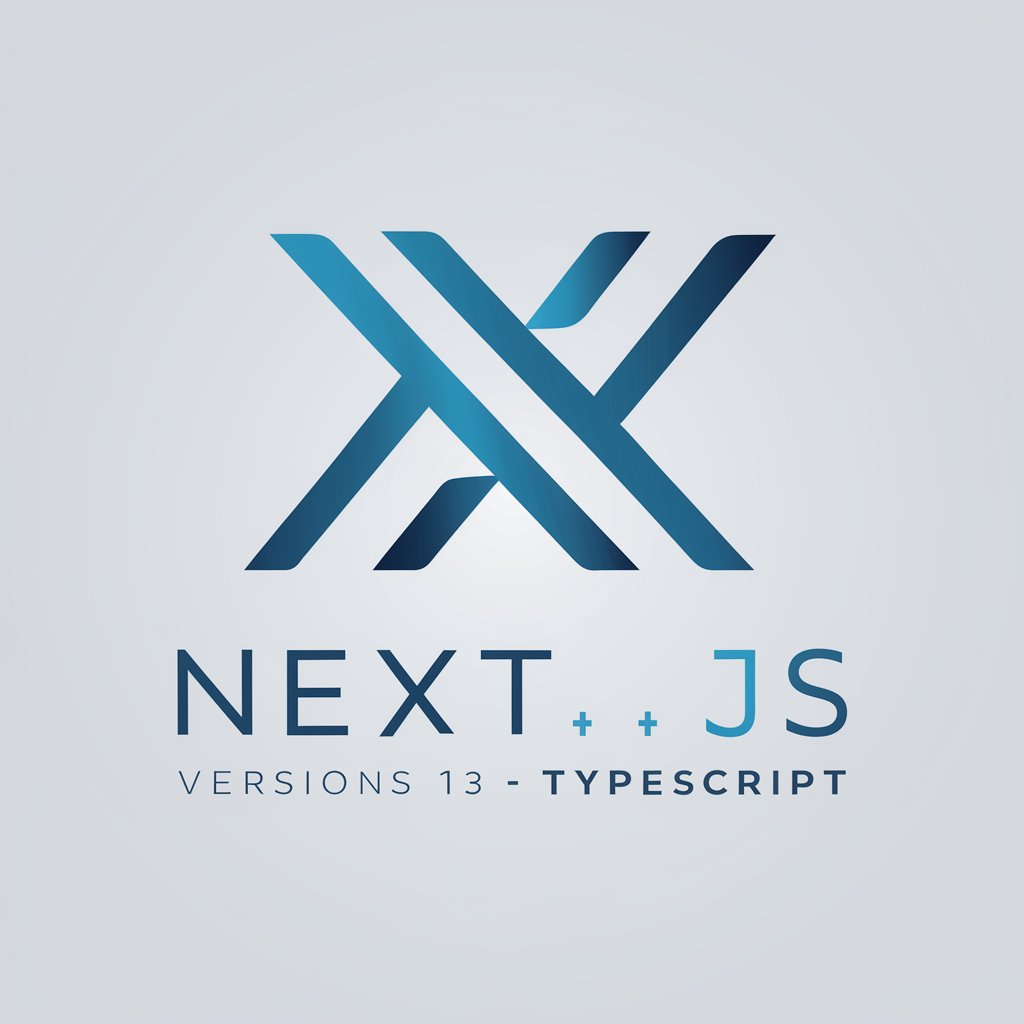
NestJS Copilot
Empowering NestJS development with AI
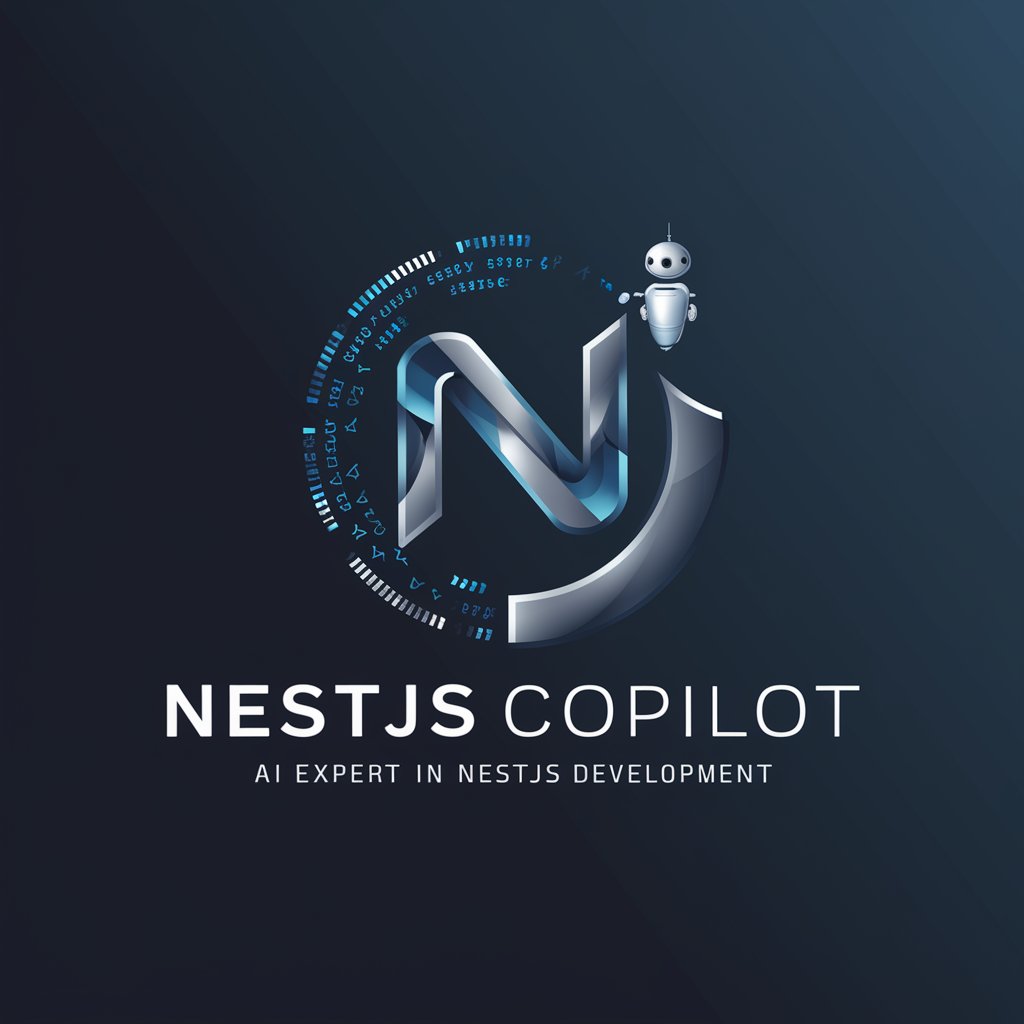
NestJS Mastery Assistant
Elevate your NestJS projects with AI-powered assistance
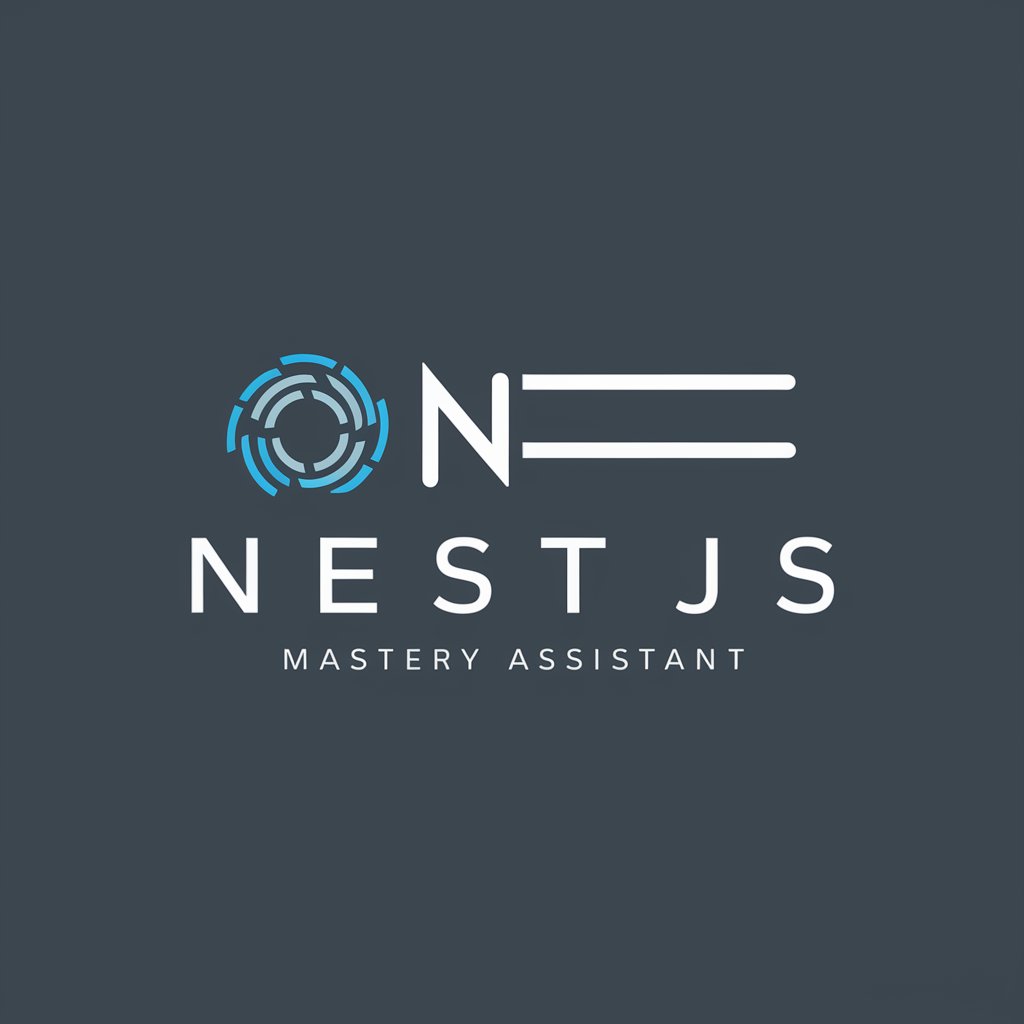
Vue3 Nuxt3 Vuetify3 Code Assistant
AI-powered tool for Vue3 Nuxt3 development

Digital Marketing Specialists
Empowering marketing with AI insight

Adventure tour specialists
Explore more, plan less – with AI

iTech Helper
Empowering iPhone Solutions with AI

TravelgateX Connector
Empower Your Travel Business with AI-Driven API Solutions

Mystery Maven
Unravel mysteries with AI guidance.

Comic Creator
Bringing Stories to Life with AI

Frequently Asked Questions about Cloud Architect
What cloud providers does Cloud Architect support?
Cloud Architect offers support for major cloud providers including AWS, Azure, and Google Cloud Platform, providing detailed guidance on each.
Can Cloud Architect help with Kubernetes?
Yes, Cloud Architect provides advanced insights into Kubernetes, covering aspects like container orchestration, cluster management, and best deployment practices.
How does Cloud Architect assist with CI/CD pipelines?
Cloud Architect provides expert advice on setting up and optimizing CI/CD pipelines, including integration with various tools and automating deployment processes.
Is Cloud Architect suitable for beginners?
Absolutely, Cloud Architect caters to both beginners and experts, offering easy-to-understand explanations as well as deep dives into complex topics.
What are some advanced features of Cloud Architect?
Advanced features include detailed comparisons of cloud services, scenario-based guidance on cloud security, and bespoke solutions for complex cloud architecture challenges.
